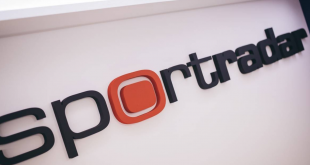Making sound investments whilst navigating the varying regulatory roadmaps many international operators face can be a daunting challenge. For Mike Goode, the ability to respond and adapt is vital to accomplish this task. 
Ahead of kwiff’s Chief Financial Officer’s (CFO) appearance at the SBC Summit Barcelona later this year, Goode provided SBC Media with insights into how the organisation coordinates its investment strategies across diverse regulatory environments.
Hi Mike, thanks for taking the time to speak with us. To start off, would you agree that adaptability and flexibility are key to a successful investment strategy in the face of economic turbulence?
I believe adaptability and flexibility are critical components of any global company and especially companies like kwiff who develop and deploy their own technology. A company should have an overall strategy they perform to, but within that adapt to industry changes, technology developments and wider macro-economic conditions can all play a part in challenging those strategies.
Sometimes these movements can be positive and so adapting to move with a trend is important. However when negative, being flexible and adaptable is also critical so you can move to protect the products and services you offer to customers.
Organisations should strive to create an adaptive and flexible mindset and challenge the status quo so that they can lead change in line with their strategy. This ultimately defines successful investment strategies, because a naturally thriving business or a business with clear successful prospects should be targeted for investment and is illustrative of how internal strategies have delivered positive results.
Has internal investment in kwiff’s tech enabled the firm to weather economic turbulence better than firms relying on third party providers?
Owning our own technology stack has many major and varied benefits. Principally we are in control of our product, which then allows flexibility in being able to shift focus quickly. An excellent example of this was during COVID when sporting fixtures were cancelled, we were able to quickly refocus efforts through our casino
Owning our own data and creation of our data lake enables us to understand exactly what our customers not only want, but how their interests change over time. It also means we can embed data models into our platform taking out the need for a lot of third party API links and so stability is determined by our technology and not someone else’s.
We operate in a number of regulated territories and there can be large differences between the requirements of each regulatory body. We can seamlessly adapt to these differences, and when there are changes we can make them faster and more efficiently.
Owning and running your own technology means we live and breathe it. We are closer to the action rather than two steps removed and monitoring a feed provided by someone else.
What comparisons can you make between the economic circumstances faced by betting in the UK and African markets in which you operate?
The UK and our key territory in East Africa, Kenya, have extremely different operating conditions, so can’t be compared as like for like.
The UK is facing a tough economic climate and it’s expected to get tougher for the population. Our focus therefore needs to ensure appropriate help and monitoring for all our UK players. In Kenya, the economy is also facing challenges, despite inflation being below that of the UK.
Economic pressures are very real in both countries – unemployment is over 5% in Kenya vs 4% in the UK. Our mantra is to ensure all our customers enjoy using our products, but do so in a sustainable and sensible way.
Overall, we haven’t seen a particular downturn in stakes in either market so economic impacts over the last 12-18 months have not yet been felt, but we forecast to see some slight turbulence, but not material to our group performance. We are expecting an improvement in overall macro conditions for both territories from the start of 2024.
The UK’s economic situation coupled with regulatory reform has created a tricky landscape for operators. How are you planning to navigate this landscape?
Our approach focuses on controlling our destiny through our wholly owned platform and the use of our data to enhance customer experience. Personalisation and gamification features that we offer are necessary in being attractive to both acquire and retain customers.Our Supercharge USP for our customers’ entertainment and delight offers something unique and special compared to traditional operators.
How much has the fluctuating tax rate in Kenya impacted the local economic conditions for the betting industry in the country?
Political instability is a key risk in the Kenyan market. However whilst it’s true that the tax rate has moved regularly, as an average it’s been fairly stable for a number of years, around the 7-10% mark.
Often tax rates are hiked but quickly normalise to this rate, when the government sees the negative impact on tax revenues of making tax rises too high. Largely the negative impact is on customers and so hurts both operators but importantly government too, hence the reason tax rises tend to be reversed or lowered.
Building further on this, what have been kwiff’s key areas of investment for its African operation and why?
Localisation of the market is critical, for language, product and marketing. European operators are often criticised for being too European. Equally operators can be too African generic, so it’s important to localise from nation-to-nation.
Investment in the right staff is also important – making sure there is a highly skilled local base. You can’t assume that the group knows best, and must be trusting in local knowledge.
Also of significance is the investment in brand and CSR – ensuring name and concept get to the population alongside supporting local initiatives.
As CFO of an international bookmaker, what do you believe are the biggest economic headwinds facing the industry this year and how can these challenges be addressed?
For the UK, uncertainty around interest rates is impacting a lot of people with mortgage rate hikes, other cost of living pressures and how that squeezes peoples’ disposable income.
There is little on a micro level to be able to challenge this but as an operator we have a responsibility to ensure people are protected as a priority, ensure they like and enjoy our product and by following those principles we retain more customers.
Inflationary pressures on operators are affecting bottom line performance, but we counter because of our reliance on automation. Controlling admin costs is key, the emphasis is to keep admin costs stable and grow revenues, leading to greater profitability.
Without giving too much away, what do you think will be the key talking points on the panel in Barcelona?
I think we’ll talk about economic conditions, in particular in Europe, future outlook and how those pressures are filtering through to igaming.
M&A is a big topic, as we are seeing more buoyancy here and the trend for consolidation seems to continue. Acquisition is now rightly focused on profit making companies, rather than more speculative approaches we saw in the last few years.
Turning kwiff into a profitable and highly functioning business has been our Board’s priority and we are fortunate to be able to combine strong profitability with market leading technology.
The increased focus for companies to invest in their own technology through acquisition will likely lead the M&A markets next year and into 2025, especially as less and less Tier 1 igaming platforms are available, so I expect there to be greater competition in acquisition deals.










